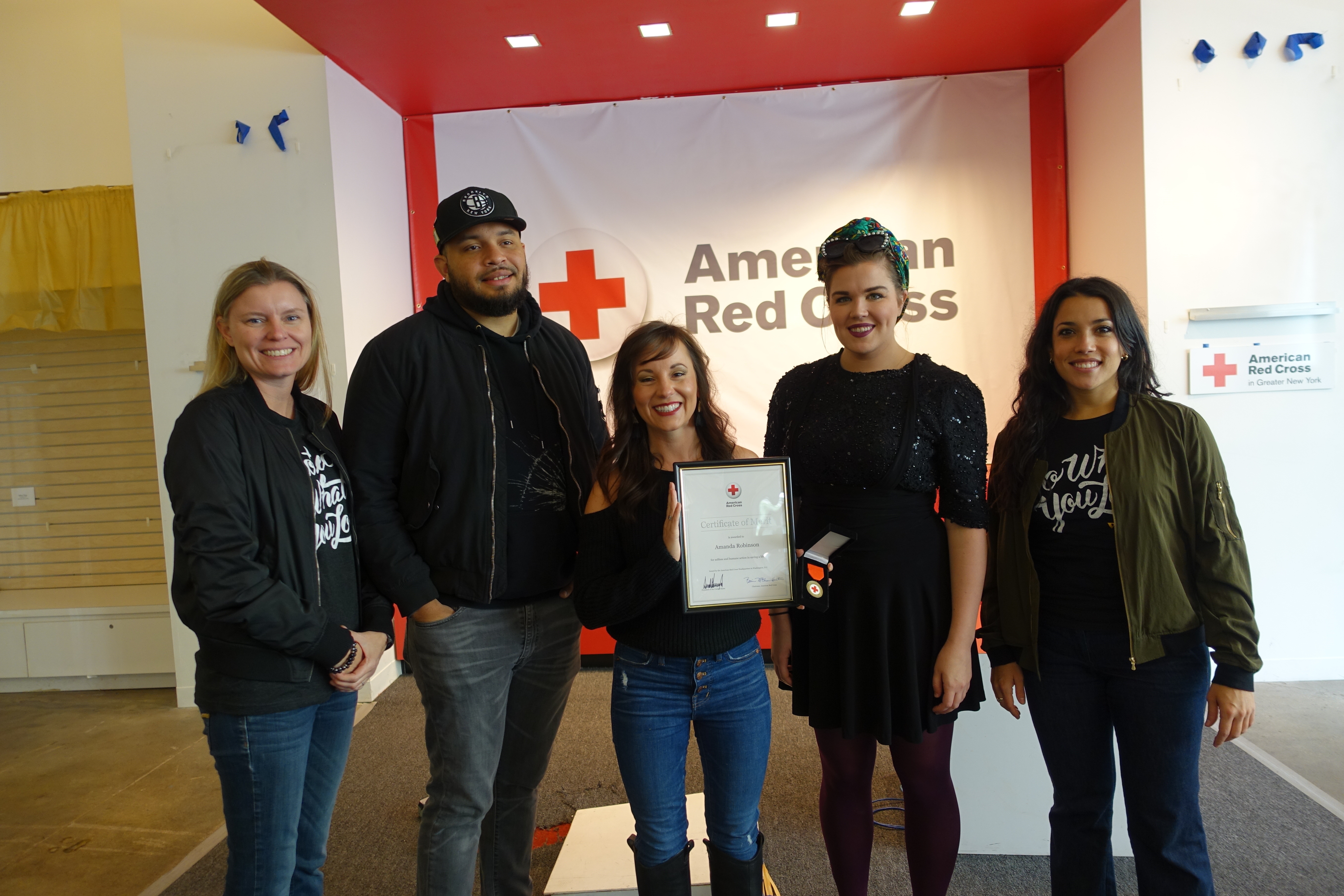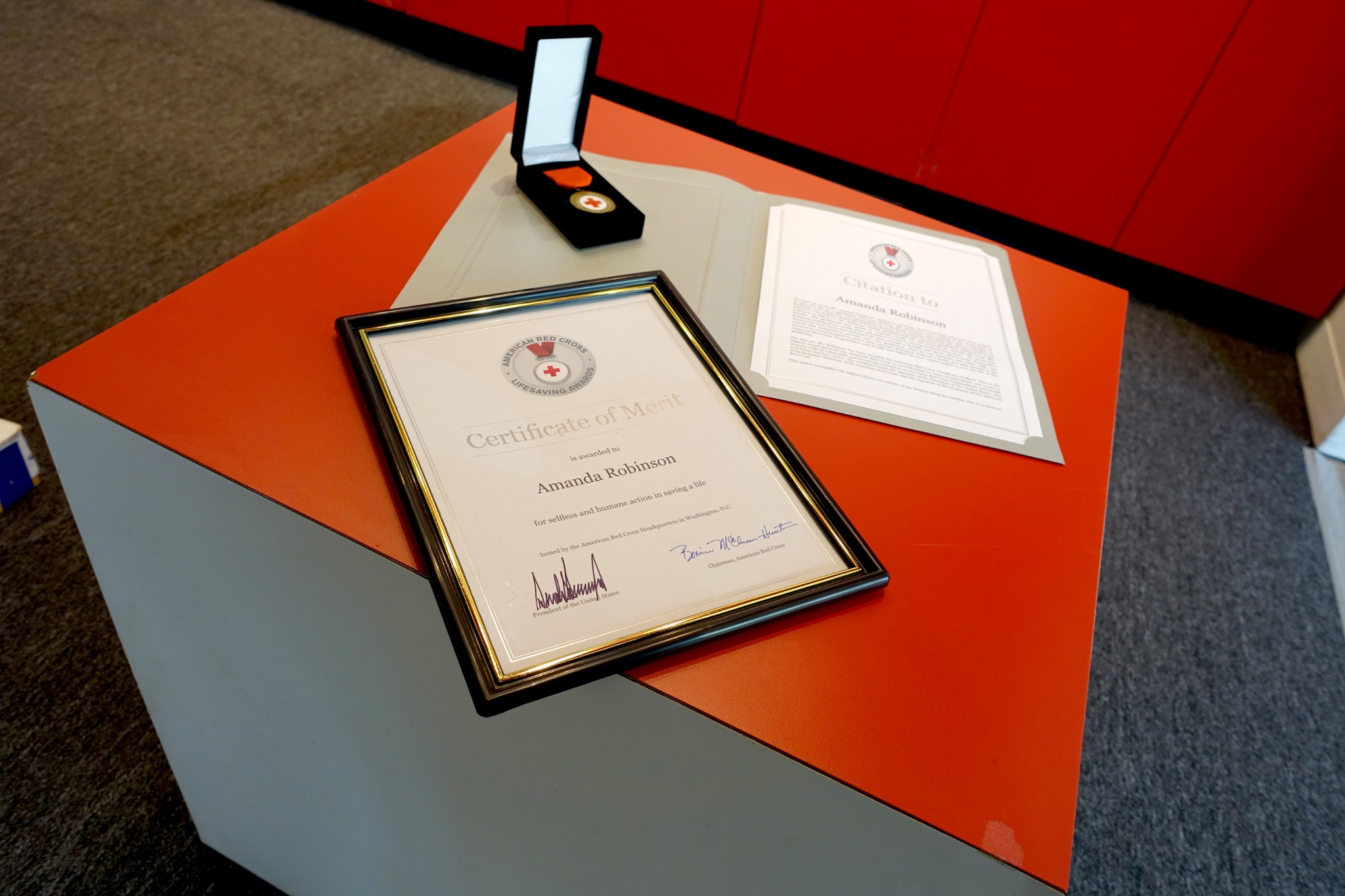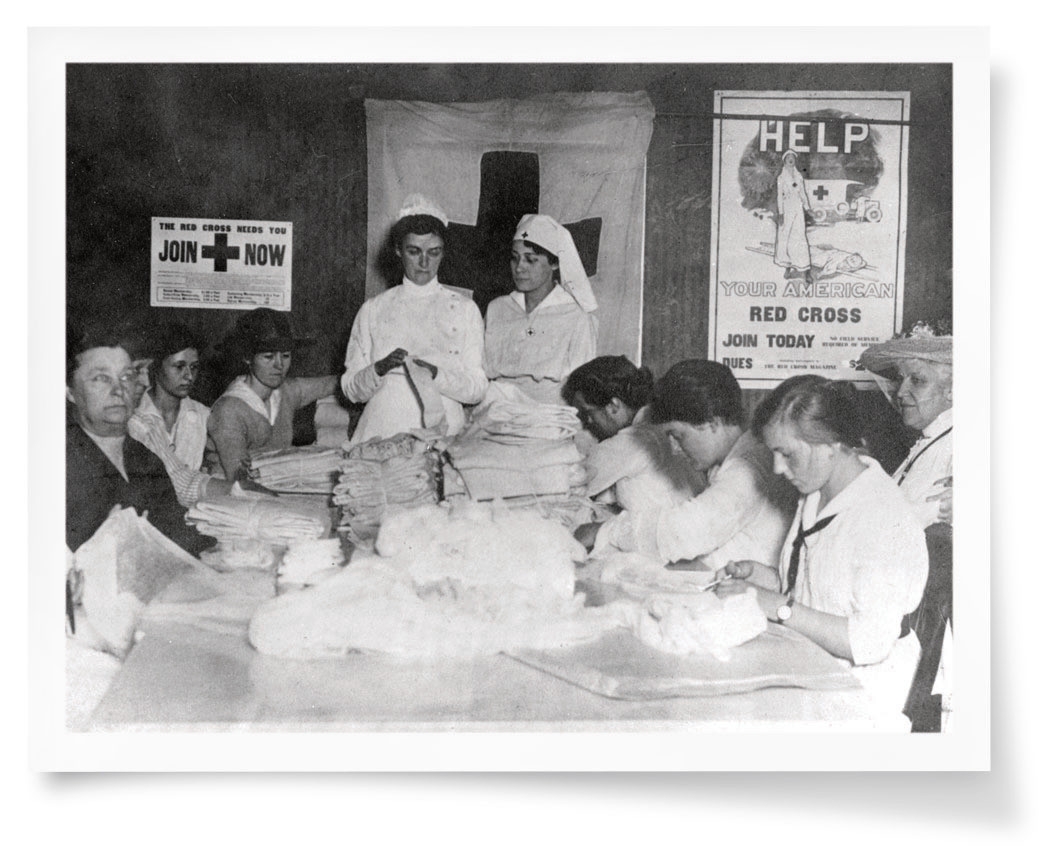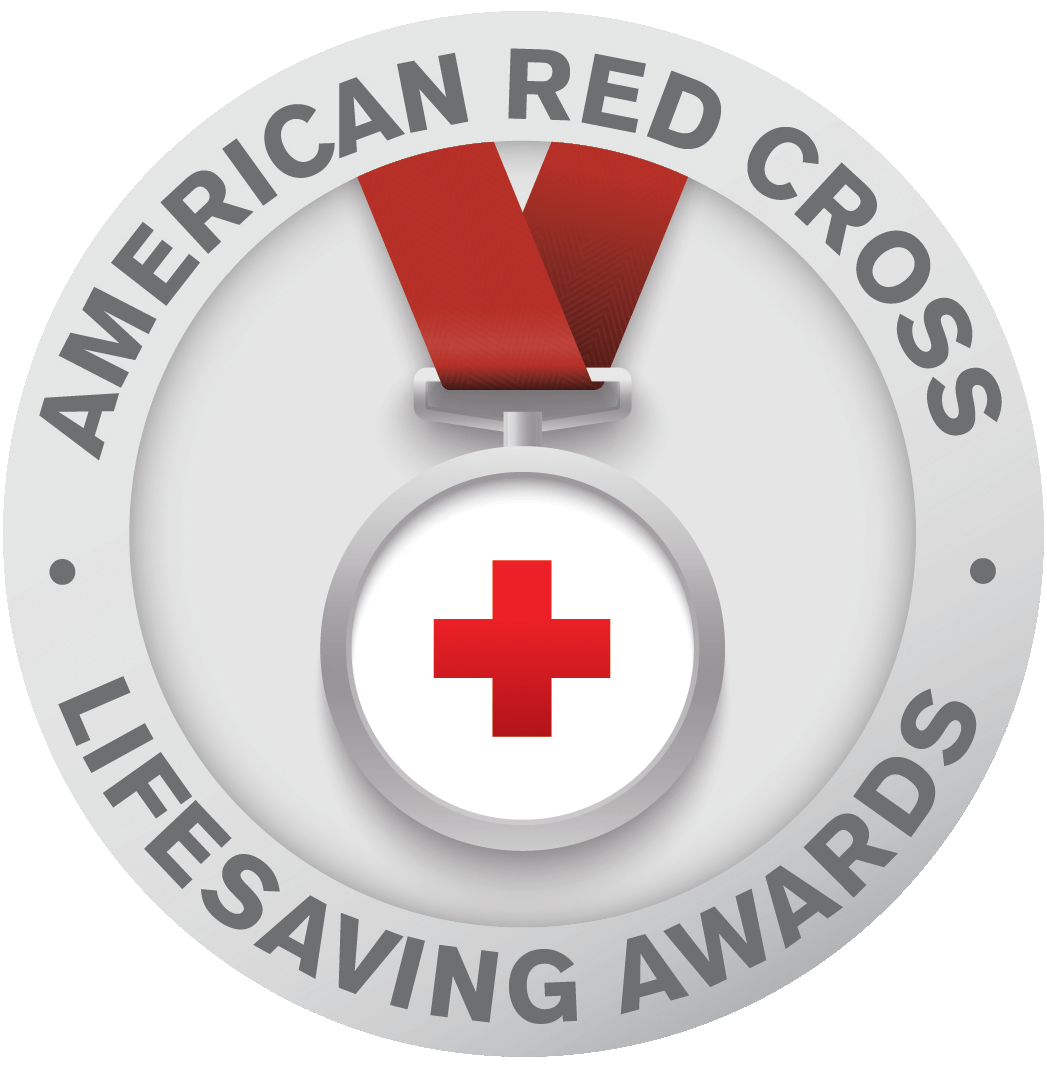YOU nominate
individuals or teams, plus tell your own story, whenever lifesaving skills are used:
WE recognize
the people you nominate with our national awards:
Certificate of Merit
For Red Cross trained individuals and off-duty Professional Responders
Signed by the President of the United States
Lifesaving Award for Professional Responders
For Red Cross trained Professional Responders and Healthcare Professionals acting while on duty
Certificate of Extraordinary Personal Action
For individuals and teams who are not Red Cross trained


Lifesaving Awards FAQS![expand-more]()
-
1. How do I or someone else nominate someone for one of the Lifesaving Awards?
Complete and submit an online nomination form, available here. The nominator will be asked to provide basic information including the date and location of the incident, the lifesaving skills that were used, as well as, if the nominee is Red Cross trained, the Red Cross 6-digit ID code.
-
2. What happens after I submit a nomination?
You'll receive an email confirmation that your nomination was submitted. In order to progress forward, you will need to supply proof of the incident occurring with the nominee's involved as well as each nominee's release form. Please read the confirmation email from Lifesaving@redcross.org upon submitting the nomination. If you do not receive the email or do not respond to it, a Red Cross representative will contact you for the additional information.
-
3. How does the American Red Cross National Lifesaving Awards differ from local American Red Cross region Heroes events?
The national Lifesaving awards are issued by American Red Cross headquarters in Washington, D.C. All nominees for the national awards may also have the opportunity to be recognized at their local Red Cross region specific Hero Recognition events.
-
4. What type of 'lifesaving skills' merit an award?
If the nominee has used any lifesaving skill taught by the American Red Cross during an incident, such as: first aid, CPR, using an AED or epinephrine auto-injector, giving back blows and abdominal thrusts or even calling 9-1-1 and providing care, they would be eligible for one of the three awards offered.
-
5. If the nominee does not have Red Cross training, are they still eligible for an award through the American Red Cross?
Yes. Nominees who demonstrate skills and knowledge taught by the American Red Cross in 'extraordinary' cases are eligible for an award.
-
6. The nomination form limits nominations to 4 nominees, but I have 5 or more. What do I do?
Submit the initial nomination for 4 and submit it again for the additional nominees referencing the case # for the first submission.
-
7. If a nomination is submitted, does the nominee receive an award?
Not all nominations that are submitted will receive an award through the National Lifesaving Awards program. We will forward nominations to our local American Red Cross regions for possible local/regional awards if the nomination does not fit the criteria for the National Lifesaving Awards program.
-
8. If the nomination is selected, what happens next?
A Lifesaving Awards program representative will reach out to you to advise of next steps. Depending on the nature of your submission, the information you share may be used to develop press releases, issue award certificates, conduct an award ceremony, and add to our national archive of inspiring stories.
-
9. If my question is not listed here, who can tell me more about the Lifesaving Awards program?
If you have additional questions, please contact Lifesaving@redcross.org
Awards Program History & Facts![expand-more]()
Our Lifesaving Awards program:
- Lets you (as the nominator) nominate individuals for one of the Lifesaving Awards
- Allows you to share your own story, whenever lifesaving skills are used
- Helps inspire others to learn lifesaving skills by expanding our library of real-life success stories
Nominees are considered for three types of awards:
|
Award |
Eligibility |
|---|---|
|
Certificate of Merit signed by the President of the United States |
|
|
Lifesaving Award for Professional Responders |
|
|
Certificate of Extraordinary Personal Action |
|
A Rich History
- In 1911, an anonymous donor contacted the National American Red Cross wishing to make a $5,000 donation to recognize first aid work rendered by railway men.
- After acceptance of the money, a trust fund was established and named after then current President of the United States and the American Red Cross, the Honorable William Howard Taft.
- The fund issued cash awards of up to $50 to recipients.
- This practice continued until 1928 when the Certificate of Merit was established to provide a more fitting and lasting recognition to a larger circle of nominees.

A Presidential Connection
- The Certificate of Merit is signed by the President of the United States, who traditionally serves as the Honorary Chairman of the American Red Cross.
- From 1928 to the present, the Certificate of Merit has borne the signatures of 16 Presidents and has survived numerous revisions to the certificate award.

Newsletters and Map![expand-more]()
- Lifesaving Awards Map: See Recent Award Locations
- March 2024 - Lifesaving Awards | Inspiring Stories
- February 2024 - Lifesaving Awards | Inspiring Stories
- January 2024 - Lifesaving Awards | Inspiring Stories
- December 2023 - Lifesaving Awards | Inspiring Stories
- November 2023 - Lifesaving Awards | Inspiring Stories
- October 2023 - Lifesaving Awards | Inspiring Stories
FIND A CLASS
Become part of a network of people who can help during times of crisis. Check our newest class schedule, and get expert training online or in person.
TRAINING FOR ORGANIZATIONS
Train for the Moments that Matter. Give your team the skills to act with confidence to save a life.



